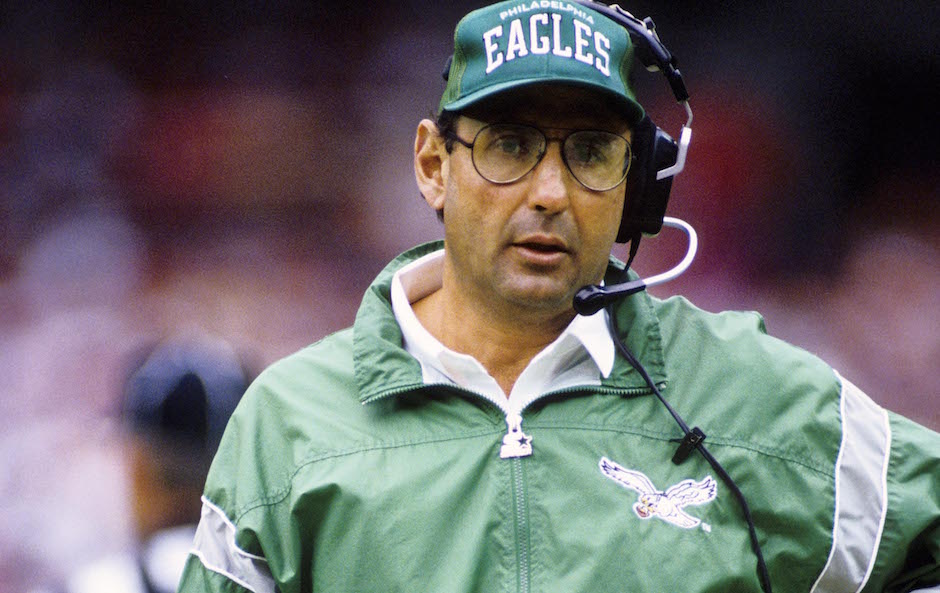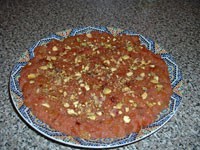Arab Americans
Rich Kotite

Richard Edward “Rich” Kotite (born October 13, 1942) is a former National Football League player and coach.
Kotite was born in Brooklyn, New York. He graduated from Poly Prep Country Day School in 1961. He, then, was a tight end who played collegiately at Wagner College on Staten Island before being drafted in the 18th round of the 1965 NFL Draft by the Minnesota Vikings. After playing for his hometown New York Giants in 1967, he went to the Pittsburgh Steelers the next year before returning to the Giants for a four-year stint starting in 1968.
After his professional football career was over, Kotite spent much of the next two decades as an assistant coach in the NFL, including a lengthy stint as offensive coordinator of the New York Jets.
Rich Kotite was hired in 1990 to replace Ted Plumb as offensive coordinator of the Philadelphia Eagles. He was promoted to head coach after the firing of his predecessor, Buddy Ryan, who was controversial but had won the hearts and loyalties of both the fans and the players, something Kotite was never able to do.
Kotite led the Eagles to 10- and 11-win seasons in 1991 and 1992, respectively, despite the loss of Eagle quarterback Randall Cunningham for the season with a torn anterior cruciate ligament on opening day of 1991, but still with the draft talent that had been selected by Buddy Ryan over the preceding five years. The defense that year under Bud Carson, architect and defensive coordinator of Pittsburgh’s famed Steel Curtain of the 1970s, led the league by accomplishing the rare trifecta of being the number one run defense, the number one pass defense, and number one in total defense. The Eagles were a wild card in the 1992 playoffs, finishing 8–0 at home. However, in the spring of 1993, the talent that had been drafted by Buddy Ryan began leaving the Eagles en masse during free agency. Kotite had poor drafts and the level of talent dropped precipitously as his draft picks began replacing the talent that had been drafted by Ryan. In the 1993 season, the Eagles went 8–8. One of the many things for which Kotite was pilloried in Philadelphia was for saying at the conclusion of the season, “Hey, eight and eight is great.” Eagles fans responded by saying if he truly believed that then he should “go fly a Kotite.” An incident which seemed to encapsulate his sense of befuddlement to Eagles fans occurred the following season, in a Week 7 game against the Cowboys that the Eagles lost 24-13. At the post-game press conference, when asked, he stated that the reason he went for a (failed) two point conversion attempt rather than kick the point after following the second touchdown late in the fourth quarter, was because the “rain made the ink run and blurred the chart, so I couldn’t see what was written on it to know what to do.” His statement/explanation is one for which he is still pilloried and ridiculed on Philadelphia sports talk radio more than twenty years later.
Still, that not withstanding, the Eagles began the 1994 season 7–2, including a 40-8 thrashing of that season’s eventual Super Bowl XXIX champion San Francisco 49ers, and Kotite achieving his seventh win against the Arizona Cardinals, then coached by his former boss, Buddy Ryan. Looking forward, a playoff berth seemed assured and Kotite’s future seemed bright. In the spring of that year the Eagles were purchased by Jeffrey Lurie from former owner Norman Braman. Whenever asked by the media if he was going to retain Rich Kotite as head coach of the Eagles going forward after the season, Lurie usually replied to the effect that it was too early in the process to be able to say anything, that any measured evaluation would have to take place at the conclusion of the season, and that he wished to keep his options open. After beating the Cardinals for that seventh win, and in a fit of braggadocio, in speaking with the media and without being prompted or asked, Kotite sarcastically used Lurie’s words and told the media that he would be doing his own evaluations at the end of the season and keeping his own options open. Like his football decisions this, too, proved to be disastrous. The Eagles lost all seven of their remaining games, finishing the season 7-9, behind the Cowboys (12-4), Giants (9-7), and Cardinals (8-8), then still in the NFC East. Unsurprisingly, Lurie fired Kotite the immediate day after the final game of the season.
After the Eagles let him go, he returned to his home town as head coach of the New York Jets, who had just fired Pete Carroll after one losing season (6–10). Owner Leon Hess named Kotite general manager as well. But under his leadership, the Jets suffered what are still the two worst seasons in franchise history. Kotite won only four games in two seasons, falling to 3–13 in 1995 and 1–15 in 1996 for the worst record in the league both years. Poorly handled drafts contributed to the rudderless ship, most notably Kotite’s first round selection of tight end Kyle Brady over the heavily favored Warren Sapp in 1995. The losing seasons and inept drafts led to mockery; Jets fans started calling him Rich Kotex, a crude reference to a popular feminine hygiene product. Two days before the last game of the 1996 season, Kotite announced he was stepping down as head coach and has never coached in the NFL again in any capacity.
After his coaching days were over, Kotite was involved in two TV promotional commercials, for the USA Network’s during the US Open Tennis championships, and for AmeriTrade during the Super Bowl XXXIV pregame show casting him as father of a son who surprises him by telling him he wants to be a Broadway dancer. He continued his media career for the NFL as a regular contributor to NFL Films programming on the NFL Network in particular, including the NFL Top 10 show.
Source: Wikipedia


